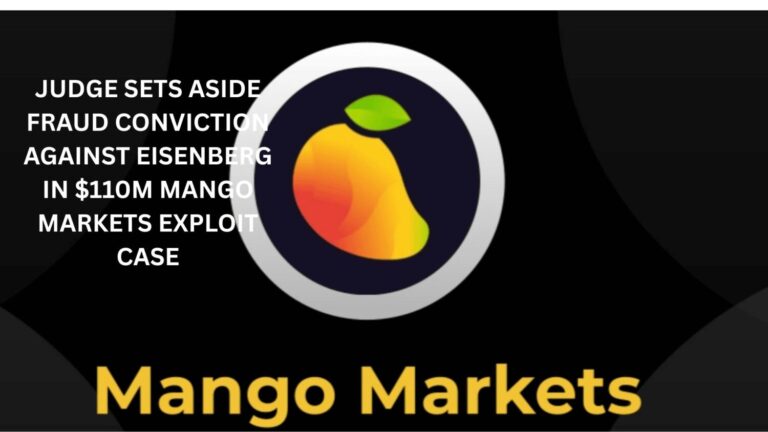Key Takeaways
- The judge sided with Eisenberg’s core defense which was that the exploit did not involve misrepresentation or deception, but rather a calculated use of openly accessible DeFi mechanisms.
- The Department of Justice now faces a strategic decision on whether to refile charges or appeal.
The judge sided with Eisenberg’s core defense which was that the exploit did not involve misrepresentation or deception, but rather a calculated use of openly accessible DeFi mechanisms.
Eisenberg, who describes himself as an “applied game theorist,” was originally found guilty in 2024 of inflating the MNGO token price by over 1,300% in minutes. Prosecutors said he then used those inflated tokens as collateral to drain $110 million in crypto assets from the platform.
The Department of Justice argued Eisenberg had manipulated Mango’s smart contract-based lending system by artificially distorting market values. But Eisenberg’s legal team countered that Mango’s code operated without human discretion and could not legally be “deceived.”
Judge Subramanian rejected the DOJ’s theory that a permissionless protocol could be the victim of fraud in the absence of any false statement. “This wasn’t a case of lies or forgeries,” said one legal observer following the case. “It was a test of what fraud means in the age of autonomous code.”
The ruling also threw out the government’s claim that the case should be heard in New York. Eisenberg was located in Puerto Rico at the time of the trades, and Subramanian determined that neither the location of a Mango user in Poughkeepsie nor a third-party vendor in Manhattan established sufficient jurisdiction.
As a result, the court vacated Eisenberg’s convictions for commodities fraud and market manipulation and issued an acquittal on a third charge. The Department of Justice now faces a strategic decision on whether to refile charges or appeal.
Despite the win in the Mango Markets case, Eisenberg remains in prison. On May 1, he was sentenced to nearly four years after pleading guilty to possession of child sexual abuse material. That case, separate from the Mango investigation, emerged from evidence seized during his initial arrest in December 2022. According to court filings, he admitted to possessing over 1,200 images and videos.
While the DOJ’s crypto-related prosecution has suffered a blow, Eisenberg still faces ongoing civil lawsuits from both the Securities and Exchange Commission (SEC) and the Commodity Futures Trading Commission (CFTC).


